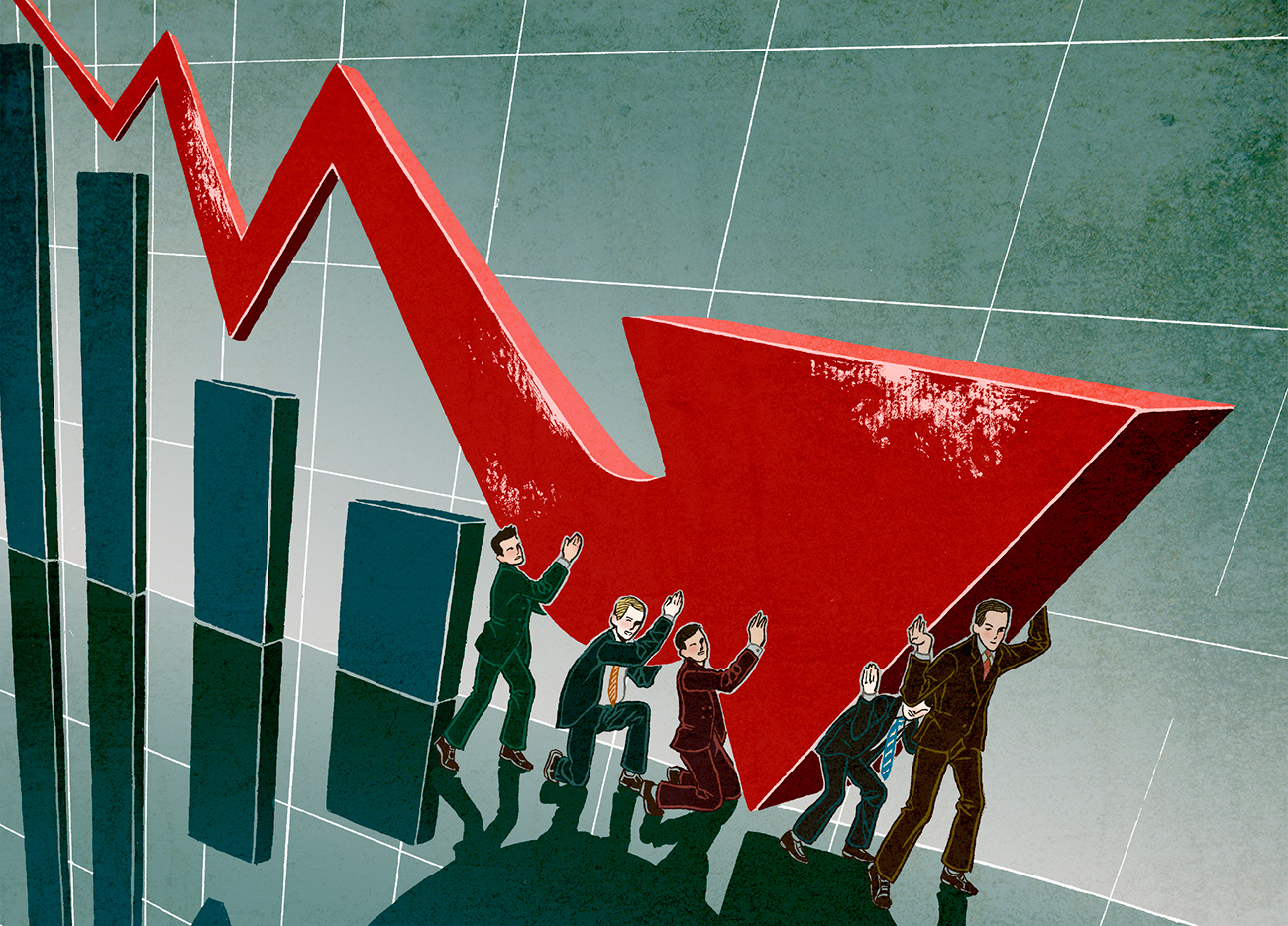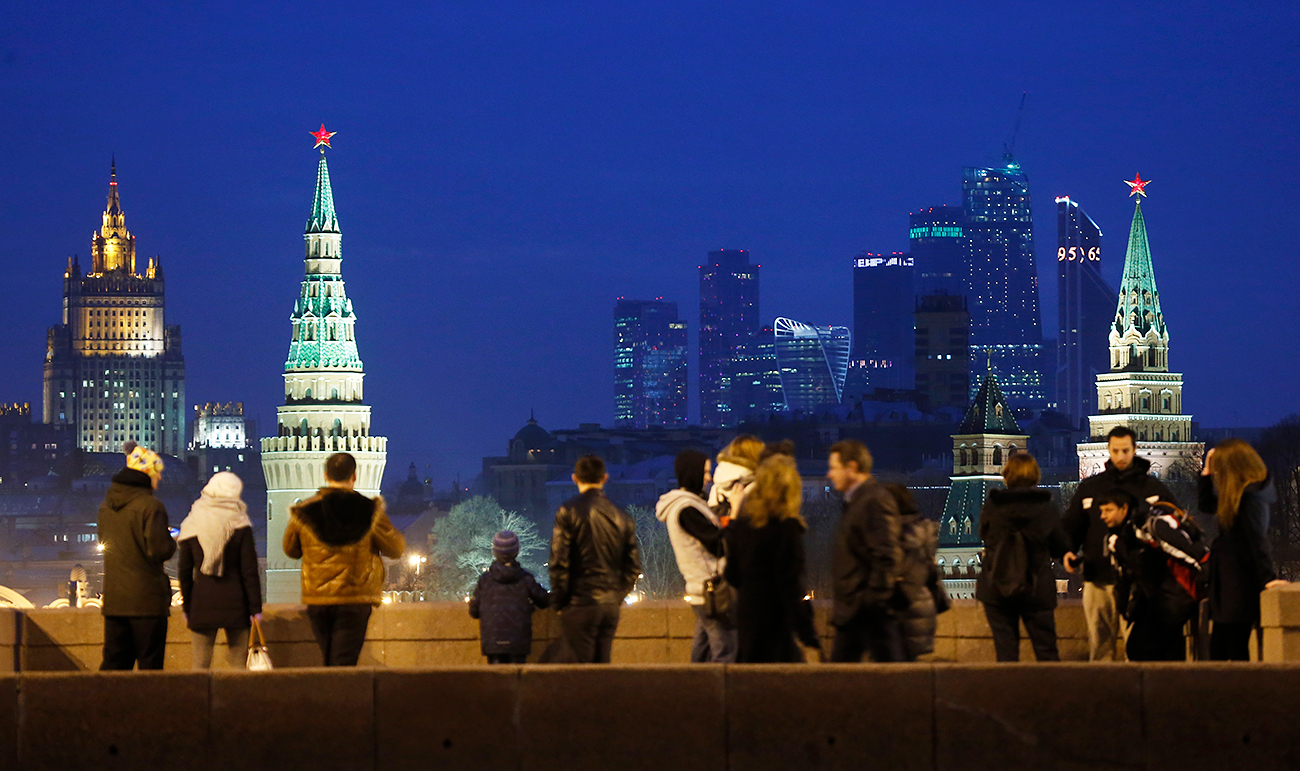Russia’s economy needs a recipe for growth

Growth is the natural mood of an economy.
Getty ImagesThe Russian economy has hauled itself out of the recession – Rosstat, Russia's statistics agency, the Economy Ministry, and the Central Bank all think so. Economic decline began in the first quarter of 2015 and according to Rosstat, continued for seven consecutive quarters. It’s a shared approach that a recession generally ends after economic growth is recorded for two consecutive quarters. That’s why, considering the fairly poor results registered during the first two months of this year, it’s still too early to affirm with confidence just how well the economy is recovering. However, there are no reliable grounds to show that Russia’s economic decline is continuing. The most fitting description would be “stagnation.”
Signs of recovery
Growth is the natural mood of an economy. The economy is a live organism and even in a recession there are sectors and companies that are not affected, and even grow. If we look at the last 30 years, there are no more than dozen of countries (not including those experiencing conflict) that went through a recession for more than two years straight. That’s why it’s not surprising that more signs of recovery are appearing in Russia's economy.
Recent Rosstat studies showed that small businesses weathered the crisis much better than medium and large businesses and their role in the economy even grew. Russian agriculture has been growing well since 1999 and last year's harvest added momentum to this sector. The growth of world coal prices has resulted in a drastic growth of Russia’s exports and improvement of railway cargo turnover indicators. The gigantic rearmament program, generously financed by the state budget, gives defense enterprises plenty of work. Consumption, which was in decline for two consecutive years, seems to be recovering – at least this can be deduced from the growth of consumer credit. The extra-payment to all pensioners given in January also helped the growth of consumer activity.
However, the signs of recovery are still not transforming into a general economic upturn and in a series of important sectors the crisis lingers. Car sales have been constantly decreasing since 2013. Residential construction volumes have been falling for two years straight and the government's decision to stop subsidizing the interest rate on mortgages has led to a noticeable fall in demand. Although the Central Bank speaks of the recovery of investment growth, production and Russian import volumes of investment goods do not show any signs of growth. And the Central Bank's extremely harsh monetary policy of keeping its key rate hovering around 10 percent with the current inflation being slightly above four percent has resulted in a drastic fall in the real sector's demand for credit.
Good, but slow
After the 2007-2009 crisis, for two years the Russian economy grew at a rate that surpassed the world economy, but then the situation flipped 180 degrees. In the last five years the lack of progress has become so great that the Russian economy will only be able to recover if its growth rate trumps the world economy by one percent annually, over the next ten years (according to the World Bank, in 2016 the world economy grew by 2.3 percent - RBTH). The Russian government is subsequently struggling to make optimistic forecasts. The Economy Ministry's latest evaluations speak of a 1.5 to two percent growth rate for the next three years and chances of further possible acceleration are linked to the set of structural reforms that the government has still not identified.
In such a situation, President Vladimir Putin's hope that the Russian economy’s growth rate will surpass the world economy’s by 2020 appears ambitious, to say the least. Even that magic wand – world oil prices – are unlikely to play a decisive role: Their $12 per barrel increase can add about one percent to the Russian economy's growth rate, but no expert is ready to predict prices will return to $100 per barrel. Today the Russian government's hopes for economic recovery are tied to the structural reform program that is being prepared by Alexei Kudrin's group. The program is expected to be presented to the country's leadership and then published. Will the former Finance minister be able to create a recipe for an economic leap? We will see.
The author is a senior fellow at The Brookings Institution (Washington). In 1993-1998 he was deputy finance minister and deputy chairman of the Russian Central Bank. His opinion does not reflect the position of RBTH or its staff.
Read more: Analysts name 13 biggest risks for Russian companies
If using any of Russia Beyond's content, partly or in full, always provide an active hyperlink to the original material.
Subscribe
to our newsletter!
Get the week's best stories straight to your inbox
